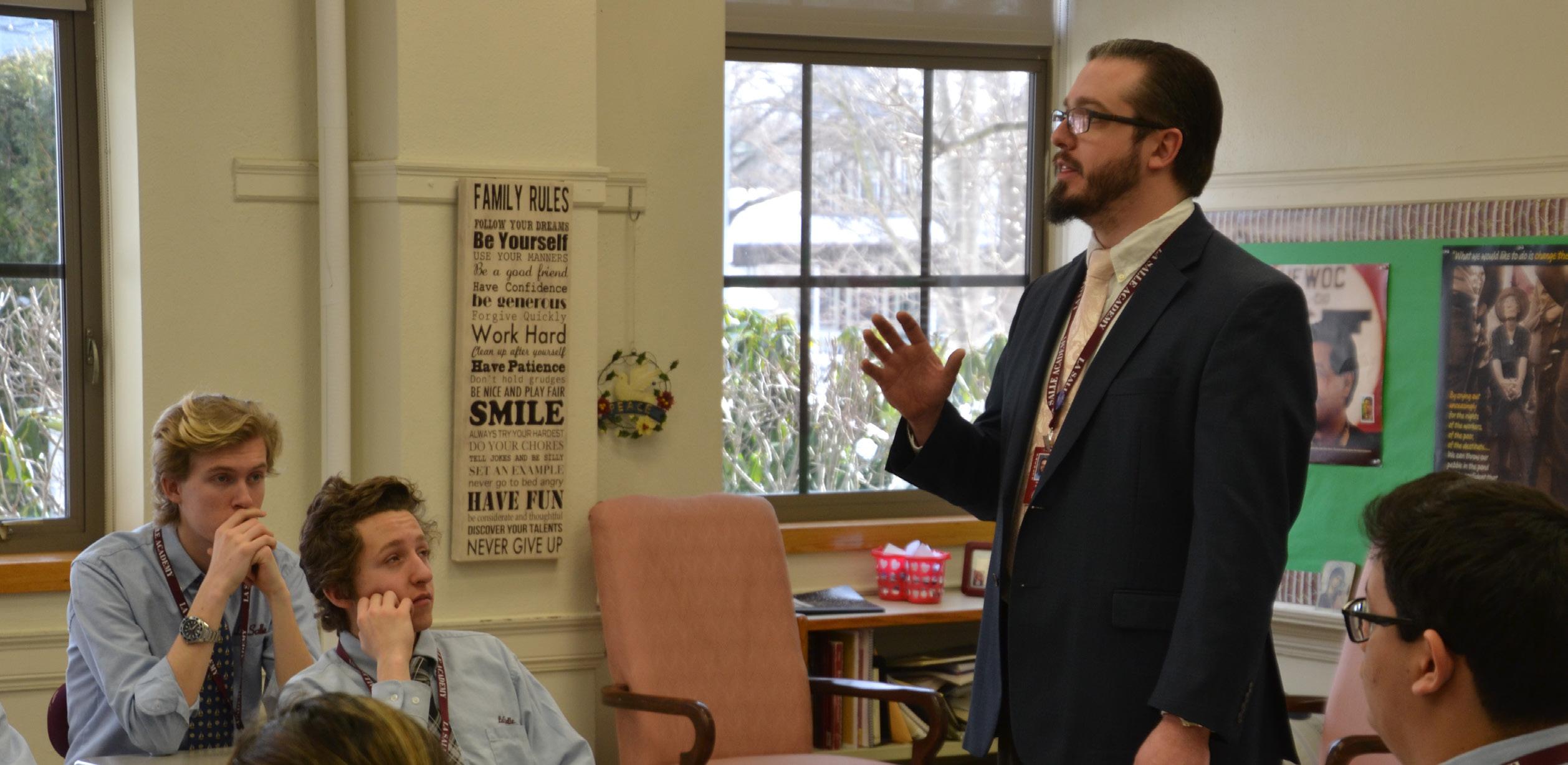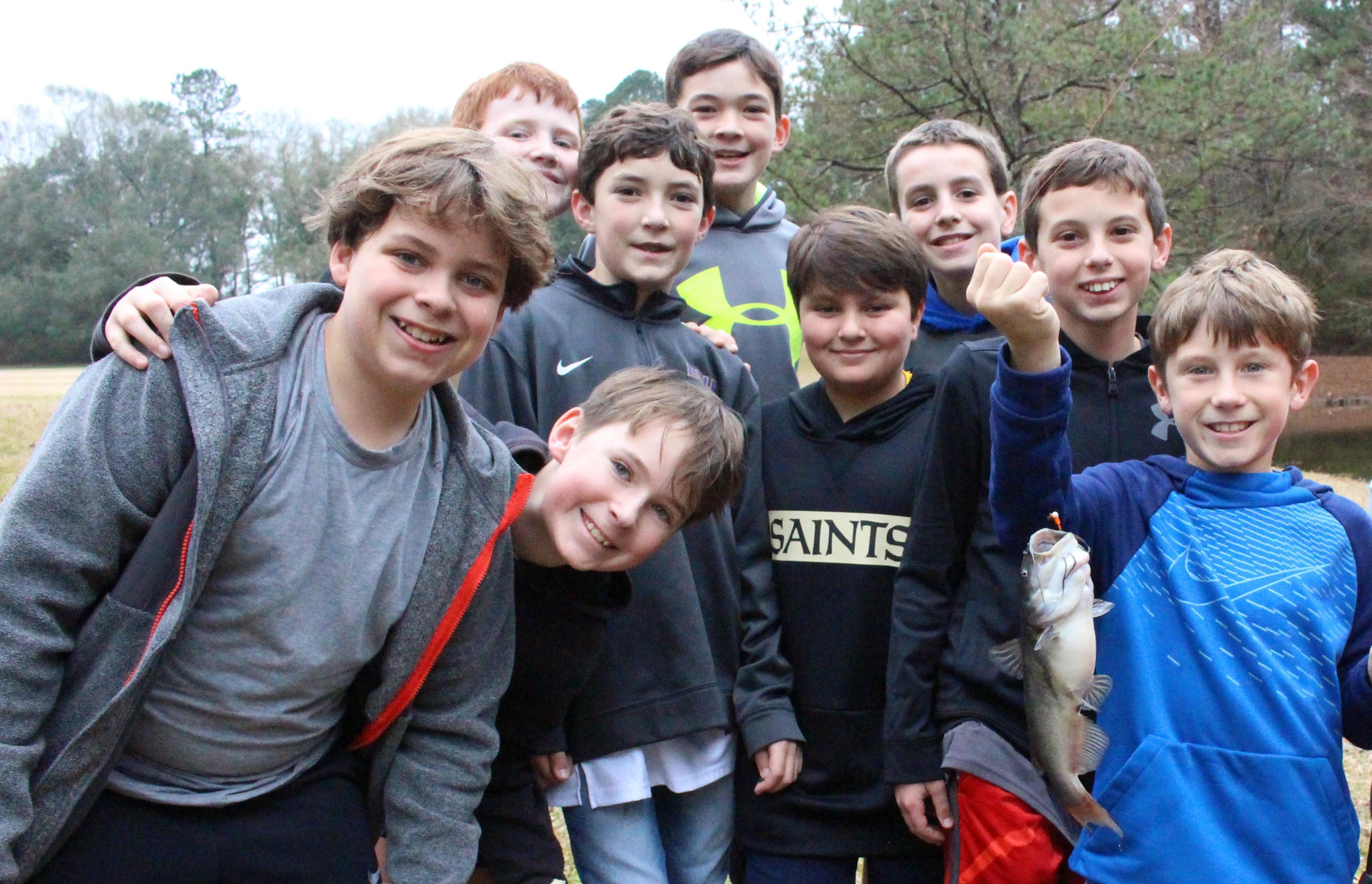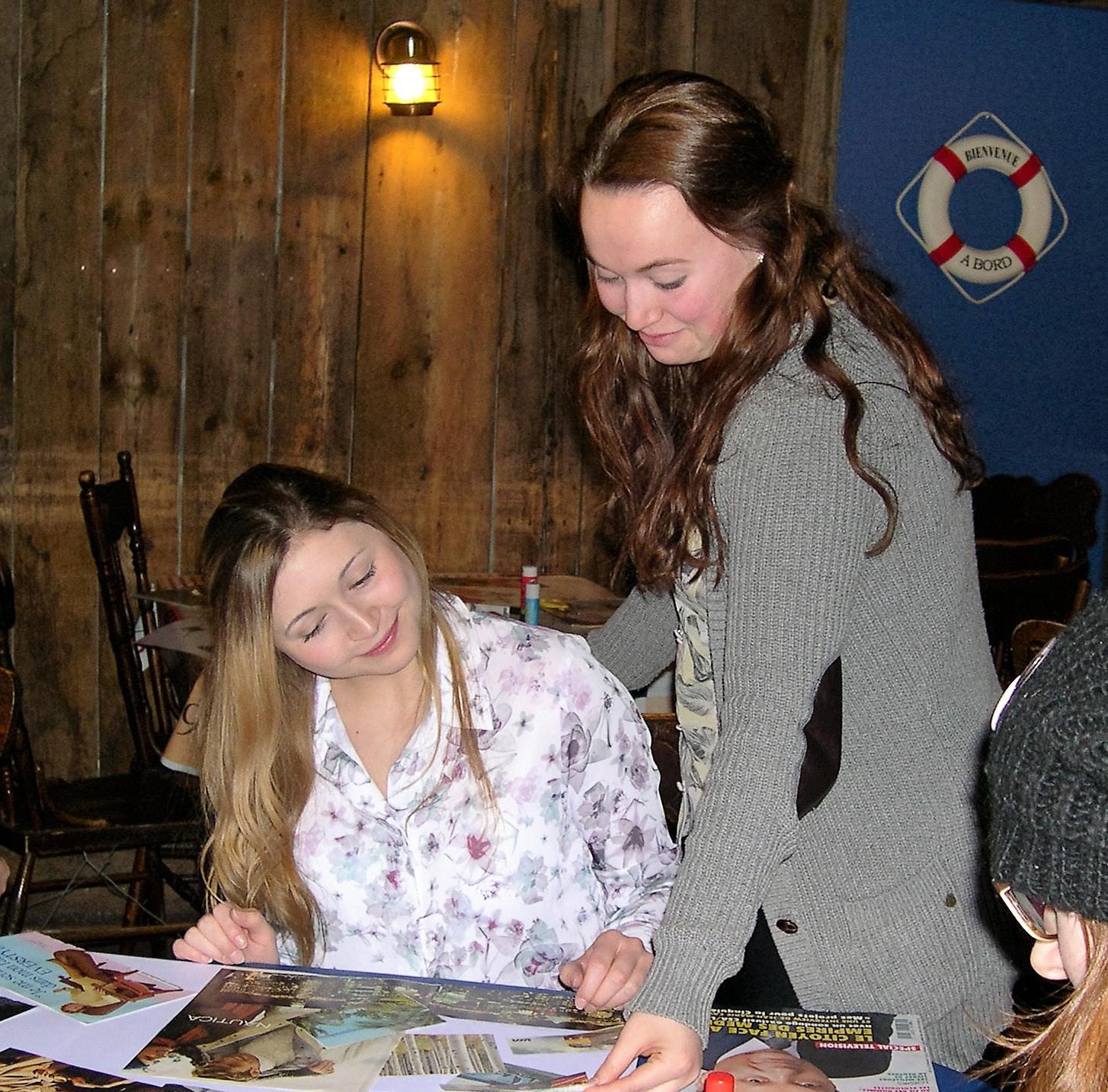
7 minute read
Accompanying Students Beyond Graduation: How San Miguel-Model Schools Continue to Support Alumni
BY ELIZABETH MOORS JODICE
Advertisement
That’s the feeling graduate support programs at San Miguel-model schools want their former students to have and one that Nancy Valdivia knows very well. Valdivia, now a high school senior, is a graduate of De Marillac Academy in San Francisco, California.
De Marillac and fellow San Miguel-model schools provide quality education to underserved middle school students in small classes with extended-day hours. The schools continue to accompany students beyond their middle school years through graduate support programs. While the programs vary schoolto-school, they typically include services such as help with the high school transition, academic support, emotional support, assistance with college applications, career development support and more. The goal is to continue to “move on together and by association,” as encouraged in Lasallian Reflection 4 (p. 5), and offer students a supportive community as they navigate their next steps in life. The programs not only offer help, but also teach young people how to help themselves.
“Even though I’m not in De Marillac, every single day I feel like they’re helping me,” Valdivia said. “Even though they’re not physically with me or telling me what to do, I feel like I have support.”
That feeling extends to a number of graduates of similar schools, such as college freshman Dulce Morales, a graduate of San Miguel School in Chicago, Illinois, and Irving Ogando, director of graduate support at The San Miguel School of Providence in Rhode Island, his alma mater.
SETTING THE FOUNDATION
For Valdivia, Morales and Ogando, the strong connection to their respective schools started with a strong foundation set during their middle school years. Morales recalled the morning check-ins at San Miguel Chicago, when teachers would make it a point to talk with students who reported unhappy feelings on their morning worksheet.
“It was really special to know that they were so understanding about how, even though we’re little kids and we might not completely understand everything that’s going on, that they help us understand exactly how to handle stuff and know how we’re feeling, and
know about what to do,” said Morales. “They were strict, but they also built this foundation of trust and openness. ‘You can trust me. I’ll be here for you, even if you don’t have anything to talk about right now.’”
That sense of support comes not only from teachers, it’s built between students as well.

Irving Ogando, center right, with his fellow classmates in the graduating class of 2003.
Courtesy The San Miguel School of Providence
“Just the same way you come in and you’re a little brother, by the time you’re in eighth grade, you’re a big brother,” recalled Ogando, adding that he still feels like a big brother in his graduate support role at the all-boys school.
That combination of support from teachers and students had a meaningful impact on Valdivia, who was learning English when she entered De Marillac. She found support through her teachers, tutors and fellow fourth graders.
“I was kind of terrified they were going to judge me [because of my English], but I felt better because of the great community there,” she said. “I didn’t feel behind. I actually felt like I was the same level as other students because they were taking the time to help me develop my English.”
EXTENDING THE SUPPORT
After graduating, Valdivia, Morales and Ogando knew they could each return to their schools and experience that sense of support again, whether they needed help adjusting in high school, were struggling with a certain subject, or just needed someone to listen.
“The environment that they made for us, it felt safe to come back and tell them, ‘Hey, I know I’m not at San Miguel anymore, but this is where I’m struggling,’” said Morales. “They would put everything aside, and be like, ‘I’m here. I’m listening. What do you need help in?’”

Dulce Morales graduated from San Miguel School in Chicago in 2014.
Courtesy San Miguel School, Chicago
“Having a person who was still invested in my future and was able to communicate things to my parents about things that I needed to be doing, keeping an eye on my grades and making sure that I was still working as hard as I could,” said Ogando, who attended La Salle Academy in Providence after middle school. “Coming into La Salle and visiting with us, stopping to have lunch. ‘How are things going? How are you fitting in?’ All of those things. Specifically, being available to answer questions and being a resource to help make transitions to every next step is probably the most important thing that I received in graduate support.”
Graduate support programs sometimes offer incentives to encourage graduates to come back for help. At San Miguel Chicago, graduates who come back are able to attend yearly retreats as high schoolers at Dunrovin Christian Brothers Retreat Center in Marine on Saint Croix, Minnesota, the site of popular retreats they attended in middle school.

Nancy Valdivia, right, spends time with fifth graders at De Marillac Academy.
Courtesy Evan Vaughn
GIVING BACK
Their experiences as students and as recipients of graduate support motivate the graduates to give back. After graduation, Ogando volunteered at summer camp for incoming fifth graders and tutored after school. He even went on to serve as the first alumnus on the school’s board of directors, and he did not hesitate to apply for the graduate support position, a role previously held by a friend and fellow alumnus. Now, he is once again immersed in San Miguel, helping current students with the high school application process and reaching out to alumni for simple check-ins and by helping them with everything from deciding which calculator to buy, to tutoring, to resume updating and job interview preparation, to hosting an annual alumni reunion.
“It was very important for me—for all of us—that an alumnus take this role. Simply because I feel like it’s my duty to give back the way that others took time to give to me,” he said. “The help I received ultimately led to me making this decision to be back here again, so it all comes full circle.”
Valdivia, whose brother now attends De Marillac, will often go to the school to do her homework before taking her brother home. While there, she supervises students who are playing outside and helps teachers with whatever they need.
“I don’t wait for them to ask. I just help,” she said.
Morales will intern at San Miguel in the fall, likely working with graduate support, and has a summer job lined up at Dunrovin, where she hopes to accompany San Miguel students on retreats. She currently volunteers at school, including reading to students, during which she mirrors the support she received.
“I would have the chance to talk with them and say, ‘Hey, how is this project going? I remember doing it when I was in sixth grade,’ or ‘How is the high school search going?’ It’s just nice because they learn from our experiences,” she said.

Irving Ogando, left, and John Wolf celebrate at the San Miguel Gala in 2017. Wolf, current executive director at The San Miguel School of Providence, was Irving's seventh grade math teacher. Now, they are colleagues.
Courtesy Ruth Clegg
ACCOMPANIMENT ON THE JOURNEY
From their days in the classroom to their experiences with graduate support, the schools have positioned Morales, Valdivia, Ogando and fellow graduates for lives of success and service.
“Every time I go to graduate support, I feel like they are trying their best to help me out in my life,” said Valdivia. “They tell me, ‘Whatever you decide is the thing that you’re going to be.’”
As Ogando shared, he feels called in his vocation to accompany graduates, relating to Lasallian Reflection 4, “We are called to accompany one another in our communities without sparing means or resources. If we want to grow, we must walk along with someone, moving on together as we share our lives” (p. 7).
“Our strength is our community, is the fact that we have each other,” Ogando said. “When you have something positive to celebrate, it’s that much better when you can share that success with somebody else. And when you have a challenge or an obstacle to overcome, it’s that much easier when you have someone to help you overcome it.”
Elizabeth Moors Jodice is the director of communications at Christian Brothers Conference.






